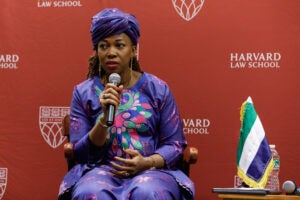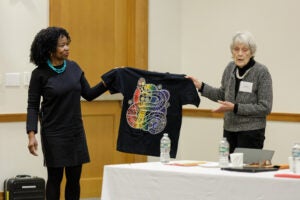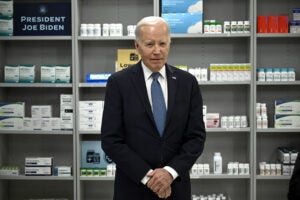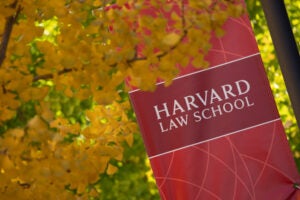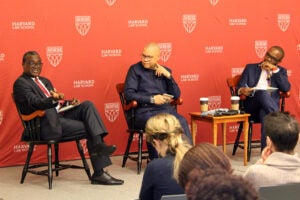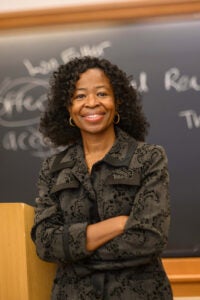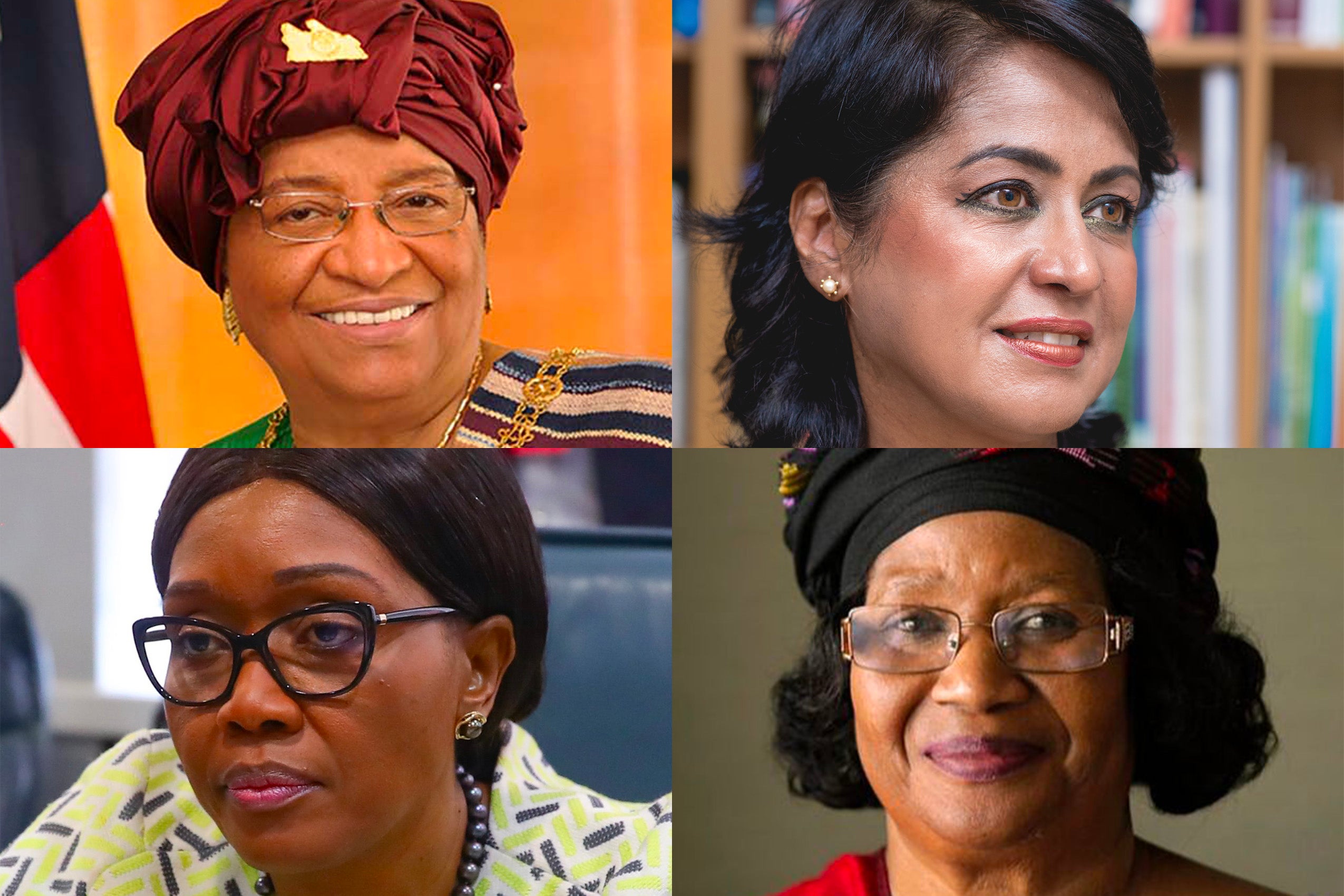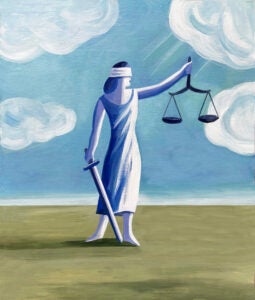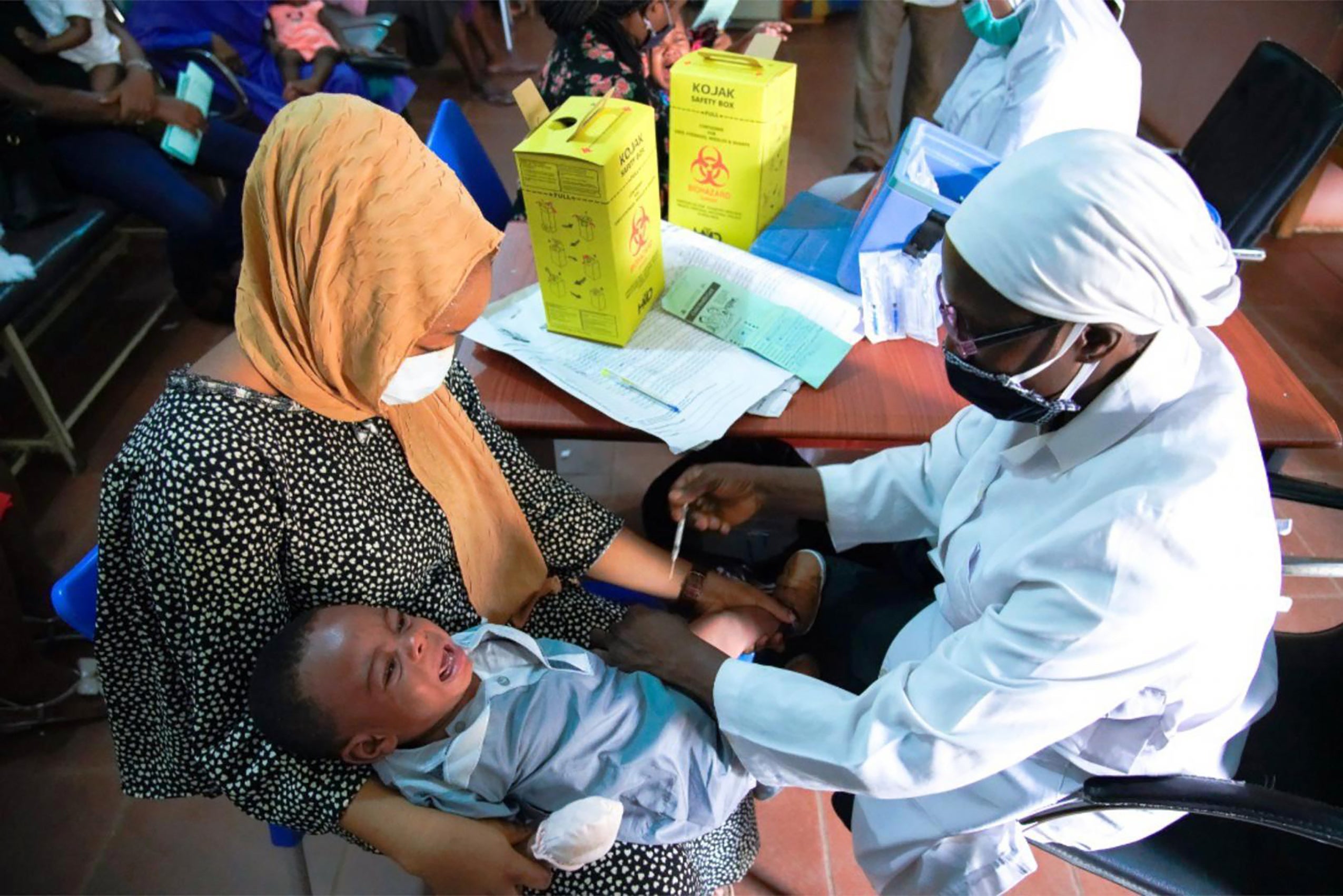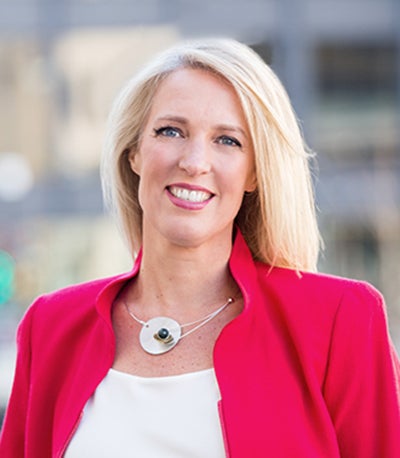People
Ruth Okediji
-
First Lady of Sierra Leone Fatima Maada Bio is working to end gender-based violence, and empower women.
-
On the heels of a special worship service at Memorial Church, Ruth Okediji spoke about the role of faith and worship music in the Civil Rights Movement, and some of her own favorite hymns.
-
‘You can’t love your country if you hate half the people in it’
February 26, 2024
When Maryland Gov. Wes Moore, a Democrat, agreed to film an advertisement for Utah Gov. Spencer Cox’s “Disagree Better” initiative, he knew just who he…
-
Protecting Indigenous peoples’ knowledge
February 26, 2024
A Harvard Law conference and project focuses on Indigenous traditional knowledge and modern justice.
-
Faith is for the public sphere, Harvard professor says at BYU Forum
January 31, 2024
Religion is for the public sphere, not the private sphere, Harvard law professor Ruth Okediji told an audience of thousands of Brigham Young University students.
-
IP expert Ruth Okediji discusses Biden administration’s ‘march-in’ proposal to target high drug prices
January 5, 2024
Harvard Law School Professor Ruth Okediji says that while the Biden administration’s proposal to use federal ‘march-in’ rights to lower drug costs is an important development, it may be more a signal than the initiation of a workable plan.
-
‘Steamboat Willie’ is now in the public domain. What does that mean for Mickey Mouse?
January 5, 2024
An early Walt Disney movie featuring the first appearance of Mickey Mouse is among the copyrighted works from 1928 moving into the public domain on…
-
Faculty honored for recent work, career achievements
December 6, 2023
Several Harvard Law faculty members have received accolades for their work and lifelong scholarship and achievements in recent months.
-
At Harvard Law, African leaders discuss growth, development and AI against a backdrop of global underrepresentation
November 30, 2023
Nigeria’s UN Ambassador Abiodun Richards Adejola and Dr. Victor Oladokun, a senior African Development Bank Group adviser, discussed multilateral challenges and opportunities at a recent event.
-
Jeremiah Smith Jr. Professor of Law Ruth L. Okediji LL.M. ’91 S.J.D. ’96 has received a 2023 Barry Prize from the American Academy of Sciences and Letters in recognition of her intellectual excellence and courage.
-
Okediji appointed director of Center for African Studies
August 10, 2023
Ruth L. Okediji, the Jeremiah Smith Jr. Professor of Law at Harvard Law School, has been named Oppenheimer Faculty Director of the Center for African Studies (CAS).
-
Why Is It So Hard for Scholars to Launch Startups?
August 8, 2023
Eunice Yang first tasted entrepreneurship in her twenties, when she helped run her family’s carton manufacturing business. Five years later, after the business was acquired,…
-
In an inaugural University-wide event, Faith & Veritas ’23 will bring together Harvard’s Christian alumni, faculty, and students March 30-April 2 in Cambridge, Massachusetts. Faith…
-
Training future women presidents of Africa
April 13, 2022
With the Women Heads of State Initiative virtual summit, Teresa Clarke J.D. ’87/M.B.A. ’88 and Professor Ruth Okediji LL.M. ’91 S.J.D. ’96 brought together four female African heads of state to explore opportunities for the continent’s future advancement.
-
Faith in the Law
January 31, 2022
Four distinct programs pursue research and address current topics linked to the intersection of religion and law
-
Waiving COVID vaccine patent rights? It’s complicated
December 27, 2021
Harvard Law Today recently spoke to Professors Terry Fisher and Ruth Okediji about COVID-19 vaccine challenges in the global south, waiving drug-maker patents, and what they propose to reform the system in time for the next pandemic.
-
The Berkman Klein Center for Internet & Society at Harvard University has announced the appointment of Susan Hendrickson ’93 as its new executive director.
-
‘Talent is equally distributed; opportunity is not’
November 30, 2021
Future-L, a pilot collaboration between Harvard Law School and the National Education Equity Lab, introduces high-achieving high school students from historically underserved backgrounds to the legal field.

